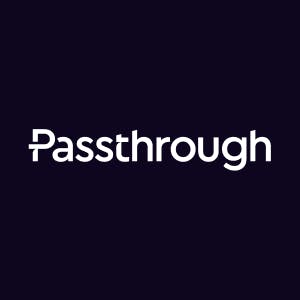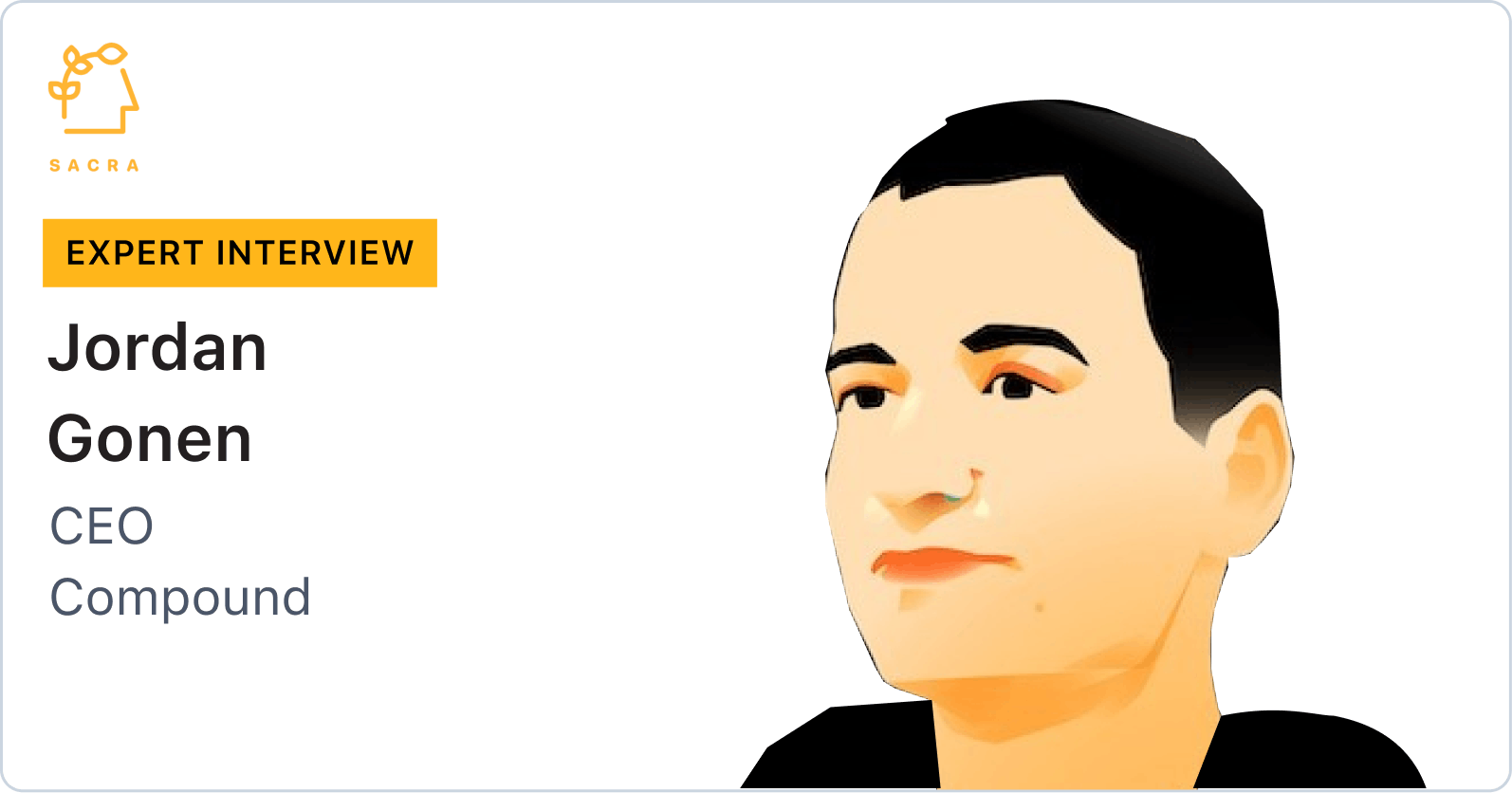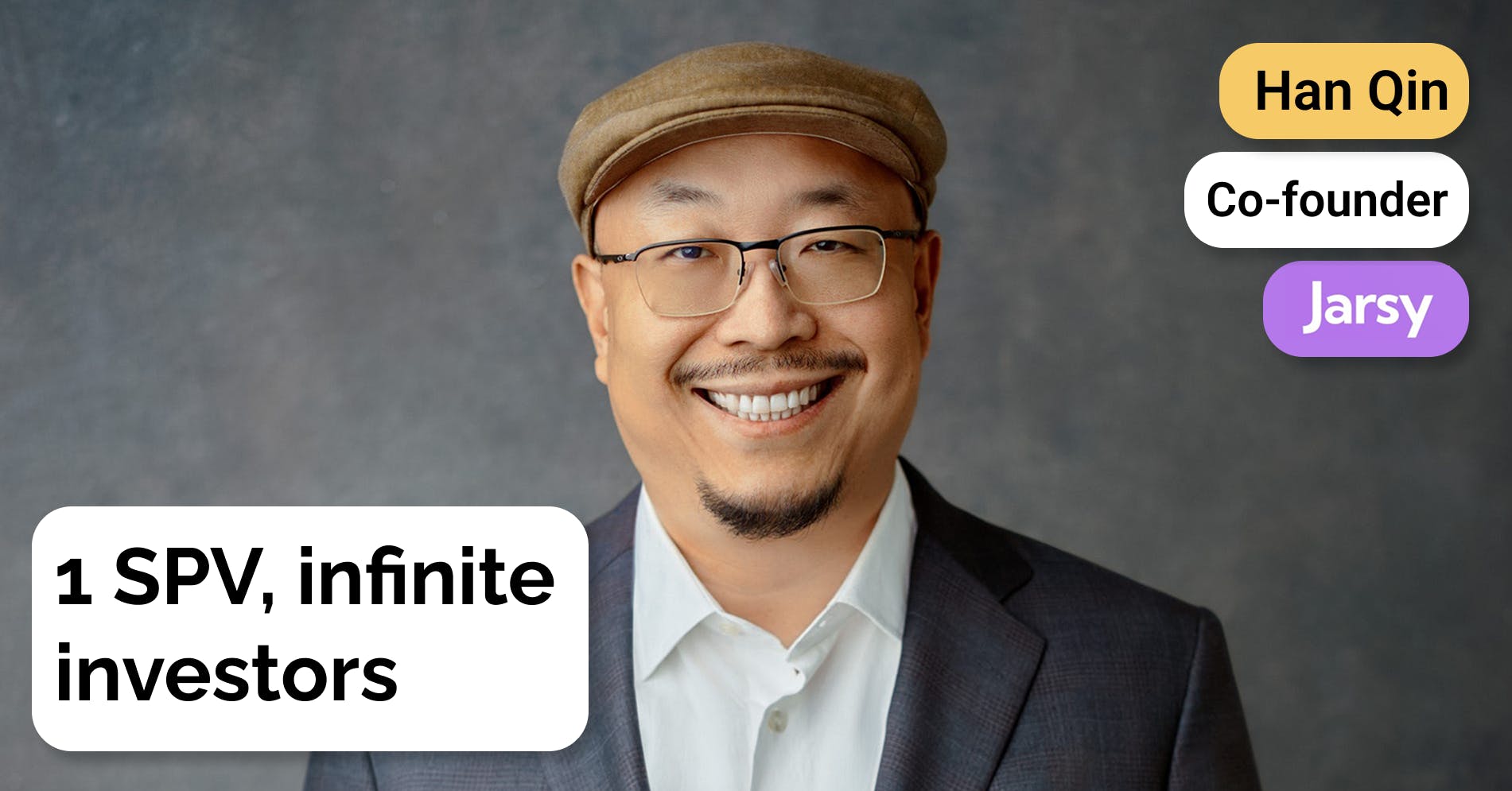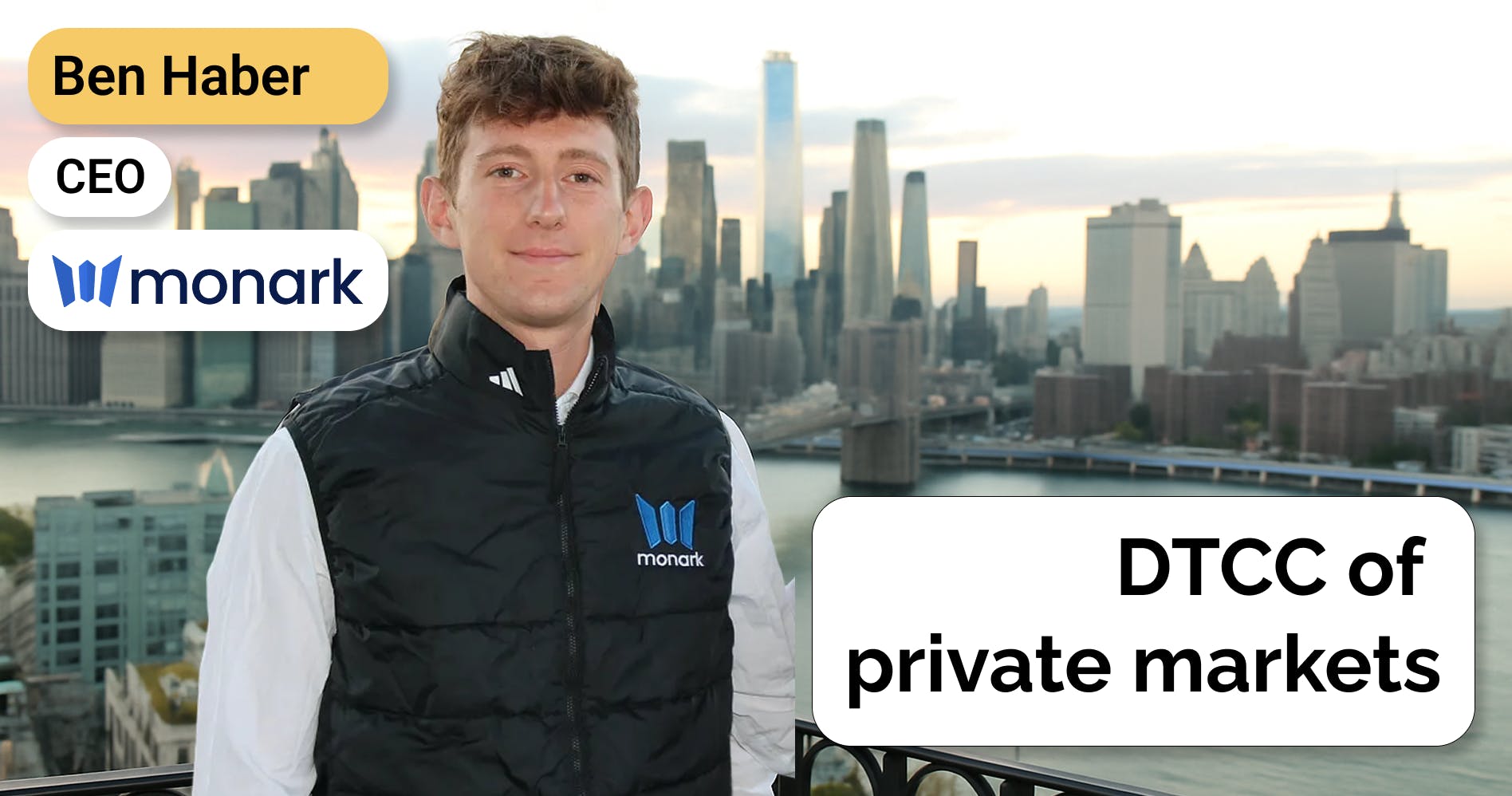Tim Flannery, co-founder of Passthrough, on building TurboTax for private fund investing
 Conor Gleeson
Conor Gleeson
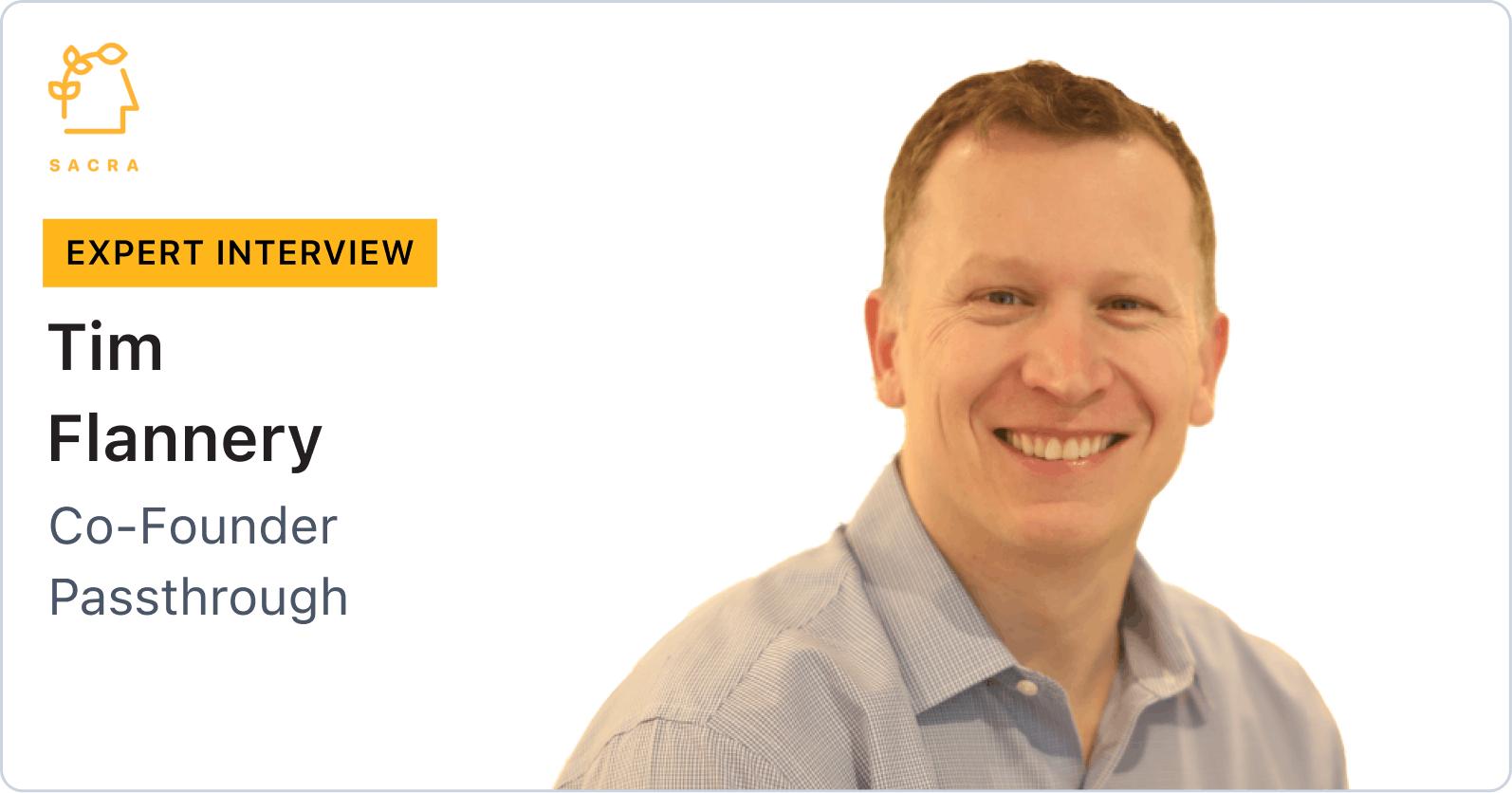
Background
Tim Flannery is the co-founder of Passthrough. Passthrough is building workflow automation software for fund management at a time when new funds, new LPs, and new VCs are everywhere—like AngelList and Carta, they are betting on a world where the private markets one day become as widely accessible and open as the public markets.
Questions
- What does the process of investing in a private fund look like today?
- Can you talk a little bit about Passthrough and how you set out to solve that problem?
- In the short term, have you focused on any particular LP profile investor profile? Is it all venture capital? Is it private equity firms or real estate?
- Fund management involves a lot of high-touch human services that companies like Carta have found it challenging to fully automate . How do you think about what you can automate at Passthrough, and how much room is still left to improve margins and further reduce human work with technology?
- Parallel Markets are coming at the problem of investor identity portability from the angle of solving for accreditation and KYC first. What leads you to believe that subscription docs are the right place to start?
- Thinking about network effects, Carta found that lawyers who interacted with cap tables built on Carta were some of the biggest advocates and sources of new customers you get at in accounting firms and other service providers. How do you see the fund administrators and law firms using Passthrough contributing to customer acquisition?
- How do you think about how Passthrough is positioning regarding other startups going after identity from a wealth management angle, like Compound and Savvy, where they become a one-stop-shop for all of the financial relationships, for potential LPs, centering around founders, wealthy tech employees, things like that.
- Do you see any interest from the wealth manager industry at large, like the registered investment advisors (RIAs) and the single, multifamily offices?
- How do you think about Passthrough's positioning with regard to other platforms for fundraising like Carta and AngelList? How do you think about the possibility of cap table management software eating up this use case?
- You mentioned balkanized accounts and generally having a hard time dashboarding wealth. Passthrough makes it easier for investors to move on and off of platforms for trading and fund admin at will. How do you think about the question of whether platforms want to enable this easy come, easy go behavior, where there may be reasons why it's a little bit more difficult to get off the platform—maybe it helps with retention.
- How do you think about TAM expansion? What other kinds of use cases do you imagine Passthrough expanding to for fund managers? How do you think about the growth of the customer segment versus growing revenue from within the existing segment of fund managers?
- What does frictionless identity verification for private markets and investors enable in terms of new opportunities?
- Given changes to the rules around accreditation, who is an accredited investor? As you pass a Series 7 or 65, it's unlocked this new class of investors. Have you seen an uptick in folks doing LP investing?
- Why haven't big players like Fidelity or Schwab, custodians that are managing both RIA assets and individual private wealth assets, gotten into the alternative IRA space?
Interview
What does the process of investing in a private fund look like today?
The traditional process for how to invest in a fund works like this. I, as a sophisticated fund manager, go out and try to get people to invest in my fund. Eventually, they decide they're going to do it, and my lawyer will share a subscription document as well as a couple of other documents like the limited partnership agreement (LPA) with them over email or DocuSign.
The LPA says, “Here are the different terms that you're agreeing to when you sign up for the fund”. The subscription document consists of a series of questions around accreditation and qualification like, “Who are you? Why are you allowed to invest in my fund?” That’s 100 to 200 questions long, depending on the domicile and the fund strategies.
This document gets shared manually with investors, and not every question applies to everyone, so investors regularly fill out the wrong thing. They miss things they're supposed to respond to. Then when they return that document to the law firm to review it, the law firm kicks it back, and it ends up going through typically multiple rounds of revision.
The fund manager has a difficult time managing this process. First of all, they’re dealing with an investor who is frustrated because it's not clear what they're supposed to be doing or how they're supposed to respond to certain things.
It’s also difficult just tracking the raise. After I send a PDF out to somebody, I don't know if they're working on it. So not only am I having a hard time trying to manage the raise effectively, but I’m also having a hard time effectively managing all the different parties I need in the raise: my law firm, my investor, but also my IR team, the partners at our fund, my compliance team, and my fund administration team.
Lastly, what happens today is that—as we exchange these really sensitive documents over email—somebody inevitably gets BCC’ed or dropped off an email. Communications get lost in the ether.
That's the current process, and it is really expensive in terms of time. Everytime somebody screws something up, you add another couple of days or weeks to when it gets turned around, which delays how quickly you can bring in capital, which delays how quickly you can go do everything else.
That's the current process of investing in a private fund, and it's more or less the same whether you're investing in hedge, or venture, or real estate, or private equity.
Can you talk a little bit about Passthrough and how you set out to solve that problem?
There are two kinds of approaches here.
One is that you can build a standardized document where people fill it out once, and it's really easy, but then you need to force the parties at the edges to adoption.
The other approach is taking the existing documents and building them into a workflow. That’s been our approach because we've worked with lawyers and we’ve worked with all these other parties before in our prior careers, so we know that's just generally how they work.
What we do is go out, take their documents, and turn them into a workflow that looks like TurboTax. Investors get one question at a time, and they only get the questions that are relevant to them.
There are three big problems we’re solving here.
One is that the investors have a very difficult time understanding how to actually answer these questions, so we can provide them with a guided tour.
Two is that it’s very difficult to coordinate the raise.
Three is that all the data that goes into this is unstructured, so getting it out and pulling it into your systems is a major challenge. There's this broad underlying issue where there are workflows throughout the private markets that investor identity is tied to. Because those isn't centralized, structured, and federated, then you just run into all of these inefficient processes wherever you go. Fixing that is the long-term goal of what we're doing.
In the short term, have you focused on any particular LP profile investor profile? Is it all venture capital? Is it private equity firms or real estate?
Right now, only about 60% of our clients are in venture. The rest are in private equity, hedge, real estate, whatever.
The one fun thing about this product is it's not a venture product. It's a private markets product. We work with micro VCs all the way up to multibillion-dollar private equity, growth, and multi-asset strategy shops. It's a fit all over the place.
It tends to do better when there are more investors, and it tends to do better when there are people who understand just how obnoxious this process is. The one nice thing is that you don't need to convince anybody that subscription documents are terrible.
Fund management involves a lot of high-touch human services that companies like Carta have found it challenging to fully automate . How do you think about what you can automate at Passthrough, and how much room is still left to improve margins and further reduce human work with technology?
I think we're trying to avoid the problem of this almost altogether. We recognize this needs to be a white-glove service because a manager is bringing their investor relationships to the table, and they're bringing all of their investor data with them. It needs to be a secure platform, and it needs to be something where an investor feels like they're being treated like an investor instead of being treated like a user. From our business model perspective, that means that we need the staff on the support and customer success side.
What we've avoided largely is building out these deep, operational teams to help you with the day-to-day of how you're running your fund. There are a couple of reasons for that.
One is that those are, as you pointed out, difficult to automate away. First, it's a tough technical challenge.
The second is that when you start to encroach on that, then you start losing the ability to be a platform, and you start becoming more of a service provider. Our aim is to be a platform that's agnostic to whatever tools or whatever teams that you have. We have no interest in becoming a service provider. Our goal is to go enable teams and take manual work off of their plate.
Really what we do is we build these very efficient workflows and combine them with this concept of a cross-platform identity. The fastest we've had somebody complete a subscription is six minutes from scratch. That's a pretty big win. That's with them filling everything out.
If we can take the information that we've already collected and repurpose it across the context of a subscription document, then we can repurpose it across all these other places, and you have data that you know is already good, that you're just reapplying.
Once there's that trust in the data, and once you have these strong workflows to make sure that the data gets into the right places, then that by default takes a lot of the manual work that needs to happen out of it.
The other thing is that, in my experience building operations teams, you've got very deep, vertical problems and you have very wide horizontal problems. One of the things that can be difficult about scaling a business with horizontal problems is that there's always something new to go build that doesn't have this additive effect over time.
On the other hand there's something like fund closing, which is a deep vertical problem. Every time we automate a piece of it, we’re just getting more and more leverage on this one very specific thing. Our approach is first, let's just do that, and let's get this to be as integrated a process as we can to allow people to do this deep coordination that needs to occur. That coordination is very different when it's focused on the accomplishment of this task, as opposed to a series of tasks that are broadly related to your back office, which is kind of where we play, in the back office.
Parallel Markets are coming at the problem of investor identity portability from the angle of solving for accreditation and KYC first. What leads you to believe that subscription docs are the right place to start?
I'm not sure if Parallel Markets and Passthrough are competitive. We're both going after some version of investor identity. Ours is pretty specific to this moment of investor onboarding and then the relationship that exists between funds and their investors and their service providers. I get the sense that Parallel Markets are thinking about it a little bit more broadly.
One, I think we have different goals.
Two, I think we have slightly different beliefs around the key problem. Our point of view on it was basically that the first official beginning of a relationship between the fund manager and the investor happens with the processing of the subscription document. Then there are ancillary things that can happen alongside it.
The Parallel Markets point of view is that there's this super deep problem of accreditation, compliance, and sanctions work that needs to happen, and without that, everything falls apart. I think they probably, actually work together.
Our experience has been that sub docs are a very strong wedge to go out and start to build a business. That's been proven out because 80% of our business has come in through network effects. Time is going to tell who's right on this. A big, key point here is that they care about a portal, regulated identity that can plug into anything and have an opinion on the investor. If you're a DAO, you can run an automated check with a parallel markets ID. We're tracking against different fund workflows and are specifically focused on private markets infrastructure instead.
Thinking about network effects, Carta found that lawyers who interacted with cap tables built on Carta were some of the biggest advocates and sources of new customers you get at in accounting firms and other service providers. How do you see the fund administrators and law firms using Passthrough contributing to customer acquisition?
Everybody gets a different kind of value. The fund manager is paying for a premium experience to bring their investors on board so they can close quickly. Maybe they save a couple of bucks on billable hours, but it's not something that we sell. The investor is getting a pretty seamless process for how to invest into a fund.
Right now, what the fund administrators are doing is extraordinarily labor-intensive and extraordinarily error-prone, so we treat them like customers, even though they don't pay us.
We learned from Carta that it’s not a good idea to actually position yourselves as eliminating law firms or trying to reduce the billable hours that people are paying for when they’re, for example, incorporating their company, going through a round of financing, or maintaining their equity stack.
There's something similar here. You can build software that makes the process easier and the value is that you might actually take some of the worst hours off of a law firm's plate. Like, you've got a third-year associate who's chasing down a signature somewhere. They went to law school to go chase down a signature. It's pretty much the worst thing that they can imagine doing on any given day. We take that work off of their plate to allow them to run everything more efficiently. It also allows them more time to provide the strategic advice that, first of all, everybody wants to give. And second of all, that’s probably also going to factor into the total cost of that engagement.
That’s why, net-net, we position ourselves as partners of law firms and partners of fund admins. Our goal is that all these partners know that it's simpler for their clients to be on Passthrough than anything else. We can spit out the data in whatever format they need. We’ve built all of these different things for how to make their processes way simpler because we know that if they don't have a good experience, then the entire engagement could be ruined.
How do you think about how Passthrough is positioning regarding other startups going after identity from a wealth management angle, like Compound and Savvy, where they become a one-stop-shop for all of the financial relationships, for potential LPs, centering around founders, wealthy tech employees, things like that.
My guess is that these people should just be our customers. The way that they make money isn’t by solving things like subscription document and KYC AML and investor onboarding workflows. What I'd rather them do is focus on the things that are the reason why investors give them money, and they can build on top of us instead.
Passthrough is an API business. We already have people building on top of that API. Compound and Savvy and others want to own the customer relationship, but what they don't want to do is solve all the nitty-gritty work of building investor profiles and making sure data moves seamlessly. They've got enough things to worry about.
If we turn it into a solved problem, then great, they can focus on making their clients money and preserving their wealth. We can focus on how to actually run these really annoying workflows that are more like check-the box-things for them and we can actually make it really nice.
Do you see any interest from the wealth manager industry at large, like the registered investment advisors (RIAs) and the single, multifamily offices?
There's a massive, massive market out there for RIAs and private wealth managers. Their experience with subscription documents is maybe the worst experience of all, because if they have hundreds of investors that are investing in a fund, that means they probably have to have a team of people that are going out and filling out sub docs for a week or two weeks straight. Yeah, there's 100% something to be built around that.
How do you think about Passthrough's positioning with regard to other platforms for fundraising like Carta and AngelList? How do you think about the possibility of cap table management software eating up this use case?
I'm not saying it's impossible. It's kind of tracing different networks, though.
The traditional cap table network is one where I, as a company, am managing all of my different owners. The network that we're working with is one where I, as a fund manager, am managing all of my investor relationships. They're different but related networks.
If you're going to go out and close a round for your company, all you're really doing is effectively negotiating these terms, and then chasing down a signature. We have this really complex workflow, and it's as complex as you want it to be. It depends entirely on your jurisdiction for how to answer any of these 100 or 200 questions that work for you.
I think the more interesting question it's how do we think about somebody who's focused on fundraising, like an iCapital or CartaX. I think it's similar to the answer from Compound and the private wealth managers.
The way that they make money is by matching capital with opportunity. If we think that there's going to be like 30, 40, or 50 different versions of iCapital in the future, which we think there probably will be, and then they just build on us, we're pretty happy with that result. We end up being a part of the infrastructure of a vibrant ecosystem.
That way, when you go to the next Carta, the next AngelList, the next iCapital, the next whatever, you should see a button one day that says “Login with Passthrough”, and it already has all this information in there. Then you can just go seamlessly transact in the private markets.
You mentioned balkanized accounts and generally having a hard time dashboarding wealth. Passthrough makes it easier for investors to move on and off of platforms for trading and fund admin at will. How do you think about the question of whether platforms want to enable this easy come, easy go behavior, where there may be reasons why it's a little bit more difficult to get off the platform—maybe it helps with retention.
Typically, these workflows are only there to enable some other way that people are going out and making money. The thing that’s sticky is going to be the years and years of performance history that you have stacked up somewhere else. It's not just all this identity and profile data about you as an investor, but also all of the current positions that you already have, or the million other ways that people have and build sticky relationships.
How do you think about TAM expansion? What other kinds of use cases do you imagine Passthrough expanding to for fund managers? How do you think about the growth of the customer segment versus growing revenue from within the existing segment of fund managers?
That’s actually one of the biggest objections we got during the seed raise. The way we think about TAM is that the market value is in three pieces.
The first is that there's an incredibly unique data asset of investor identity. We collect it just by having investors run through our process. We do it passively. We're not asking people to provide it to us. Then we provide it to them so that they can permission it however they'd like. We have this incredibly unique asset, and providers want to access it once an investor grants them permission. That data sits in our pipes. Those providers will eventually pay us for accessing that data, much like Plaid every time someone does financial transaction verification with another counterparty.
The next way that we think about it is not fund closing as a product, although fund closing is a bigger product than people give it credit for. We think about it with fund managers. There are all sorts of other things that fund managers need to solve on an annual basis. There's an element of regulatory reporting. There's an element of tax reporting, KYC AML, and the list goes on and on.
What you're going to see from us in the not too distant future is that we're going to start to tackle pieces of that. Our primary objective has been, “Let's make it as simple as possible to fill out a subscription document.” Then there's expansion into other places.
Right now, our biggest issue is we have too many opportunities to go close, which is a fun problem to have. Eventually, we'll make sure that we can take those relationships and use them to see if we can generate additional revenue through additional products.
Then the other thing, when you think about the overall market size, is there are additional customers out there. There are additional people who need to build stuff around this. There's a whole product that could be built for law firms, fund admins, banks, tax teams, wealth managers, fintechs, and everybody else who's out there with an investor identity. We have a suite of things that we have in the hopper that are not on the near-term product roadmap for us. That's how we think about expansion over time.
What does frictionless identity verification for private markets and investors enable in terms of new opportunities?
We've literally seen a fund closing be so annoying for people that even though they've built relationships with fund managers, that they are excited about the opportunity of investing, they've declined to invest because of how annoying this process is. It's literally that hard to fill out some subscription documents. If you can take that process that's days or weeks long, and it's all this back and forth, and all this frustration and annoyance that's felt by everybody, and you do turn it into something that's “log in with Passthrough”, then it becomes something that looks more like “buy now”.
A different parallel we've thought about is the process of going out and investing in Apple. You sign up on Robinhood and in a couple of minutes, you can be buying Apple and any other public stock out there, whereas the process for investing in a fund is this Byzantine path through 100 pages of legal documentation.
If we can make it as simple to invest in the private markets as Robinhood did for the public markets, then you allow this consumerization of the private markets to happen. That means that institutional-grade products will be available to the masses, which is a broader trend that's been happening anyway. The exciting thing is that it’s an accelerant to what's going on—more companies will be building in this space, and they’re going to need infrastructure, and it’s going to spark this whole cycle of innovation that we've already seen.
Given changes to the rules around accreditation, who is an accredited investor? As you pass a Series 7 or 65, it's unlocked this new class of investors. Have you seen an uptick in folks doing LP investing?
Partners Group petitioned the Department of Labor a couple of years back to allow 401ks and IRAs to invest in alternative assets. The Department of Labor said yes.
There’s this huge swell of demand, whether it's crypto or Alto IRA or anything else. It's already here, and it's only going to get stronger. And every ounce of additional complexity is good for us. Every time CIMA goes out and decides to put another rule in place, what we get to do is abstract it into our workflows. So when somebody builds on top of us or when somebody has to pull data out from us or whatever it is, we handle all that additional complexity. Then they just get to handle the relationships that they have with their users and customers.
Why haven't big players like Fidelity or Schwab, custodians that are managing both RIA assets and individual private wealth assets, gotten into the alternative IRA space?
As I understand it, originally, you used to be able to do some type of investing like that through Fidelity, but it's really operationally intensive. It’s even operationally intensive with Alto and some of the other ones that need to go figure this out or how to go bring them in because ultimately, they need to execute these docs on behalf of their clients. And there are a lot of rules and regulations attached to that.
I believe that Fidelity and those other groups stopped processing investments like that because it was just too much for them to handle. It's not to say that they can't go do that in the future. My guess is maybe you will see that, and maybe you'll see an acquisition somewhere, but there hasn't been any interest in it. I can't tell you if it's because they think there's some risk appetite that they don't want to handle, or if it's all because the operations of it are just too much to deal with. I mean, the alt side of Alto has been big. The crypto side has been huge. I don't know if it's a crypto versus alt thing. I don't have a great answer beyond that.
Disclaimers
This transcript is for information purposes only and does not constitute advice of any type or trade recommendation and should not form the basis of any investment decision. Sacra accepts no liability for the transcript or for any errors, omissions or inaccuracies in respect of it. The views of the experts expressed in the transcript are those of the experts and they are not endorsed by, nor do they represent the opinion of Sacra. Sacra reserves all copyright, intellectual property rights in the transcript. Any modification, copying, displaying, distributing, transmitting, publishing, licensing, creating derivative works from, or selling any transcript is strictly prohibited.
